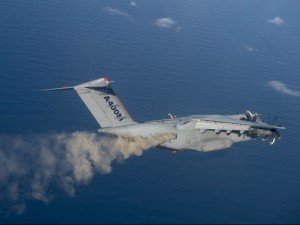 Engineers from Airbus and their customer Easyjet have teamed up to create an artificial ash cloud to test a sensor that could help avoid massive airspace closures after a volcanic eruption.
Engineers from Airbus and their customer Easyjet have teamed up to create an artificial ash cloud to test a sensor that could help avoid massive airspace closures after a volcanic eruption.
When a volcano erupted in Iceland in 2010, it filled the skies over Europe with a massive ash cloud. From April 15-21, 2010, more than 100,000 flights were cancelled as officials scrambled to assess safety. The closures cost the airlines an estimated $2.6 billion.Flights had to be cancelled because the ash can cause structural damage as it melts inside aircraft engines and sticks to engine blades. It also sticks to windshields and can interfere with other instruments. The ash is difficult to detect and track because it is incredibly fine.
Europe could see a repeat situation within the next couple of years, experts say, because Icelandic volcanoes erupt about once every five years. If the wind is blowing to the northwest, the ash ends up in European skies.But the next time it happens, pilots should be better equipped to assess the dangers, with the help of a new sensor designed to detect ash in the atmosphere. Engineered by European airline easyJet, aircraft maker Airbus, and Nicarnica Aviation, the Airborne Volcanic Object Identifier and Detector (AVOID) would be mounted on aircraft.
Airbus Creates Volcanic Ash Cloud Test
November 15, 2013 by



